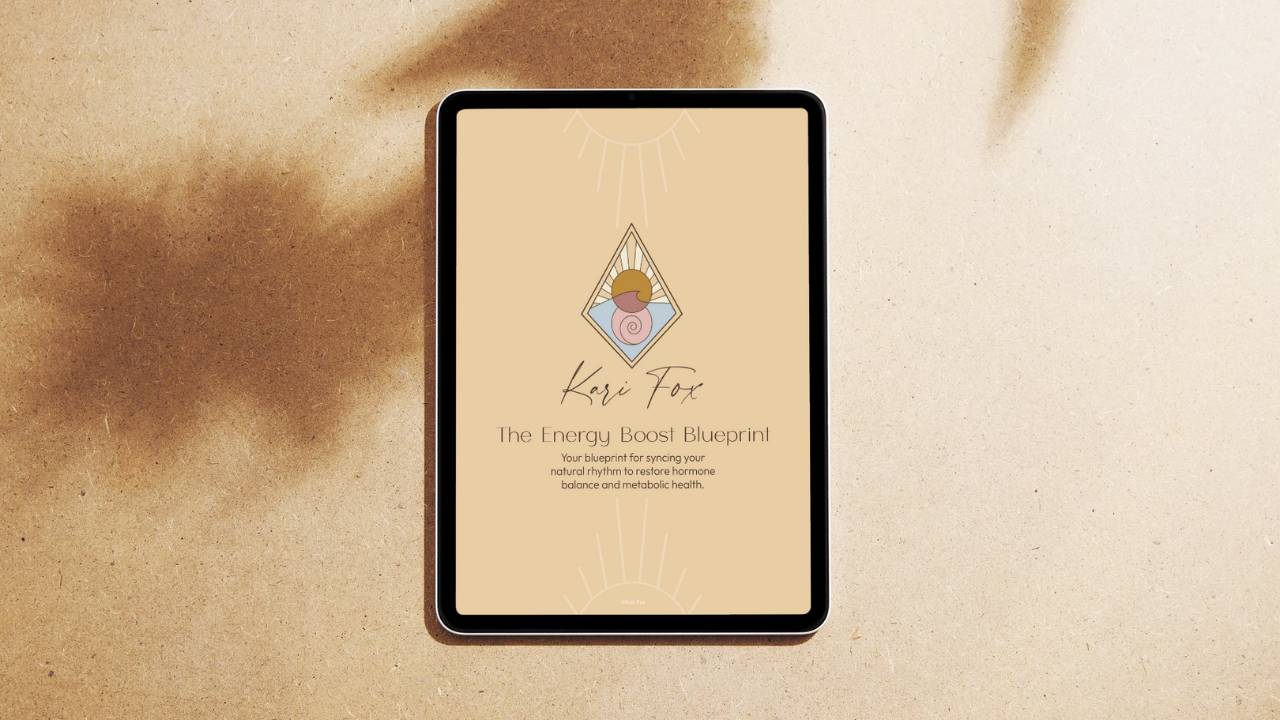The Big Deal About Blue Light: Natural vs Artificial
Feb 04, 2025
We hear a lot about the dangers of blue light as in the light that is emitted from our screens , devices and light bulbs, but what about natural blue light? The changing blue light frequencies from natural sunlight throughout the day have a profound impact on our physiology. This relationship is rooted in our evolutionary history, where humans evolved to be active during daylight and restful at night. This is reflected in the frequencies of blue light that are constantly changing throughout the day and how they interact with our physiology.
Natural sunlight contains a mix of wavelengths, all colors of the rainbow, along with some that are not visible to us. These different wavelengths of light include blue light, which is most prominent during midday hours. This blue light is crucial for regulating our circadian rhythms, which are our innate biological clocks that govern many physiological processes over a 24-hour cycle.
When the sun rises there is a specific blend of blue along with red light that activates a pathway in our starting the production of a hormone called pregnenolone in our mitochondria. Pregnenolone is the precursor to other important hormones like testosterone, estrogen, progesterone, cortisol. As the sun rises, and blue light increases, hormone production continues and the production of neurotransmitters begins. Adequate production of neurotransmitters is important for many things including mental/emotional health by influencing things such as motivation, happiness and optimism, and also physical health, influencing our gut health, blood pressure, modulating our immune system, thyroid health and more.
Natural light exposure to bright light, particularly blue, during midday suppress melatonin production, the hormone that induces sleepiness, and keeps cortisol up, promoting alertness and wakefulness. If you’re are tired during the day, try a light break outside!
Research also suggests that exposure to blue light during daytime enhances cognitive function, improves alertness, reaction times, and overall mental clarity, making it easier to focus and learn. Alternately, Insufficient sunlight exposure, for example during the winter months, can lead to feelings of depression and fatigue, those symptoms that are sometimes described in seasonal affective disorder.
As the day progresses into the evening and the sunlight’s color temperature decreases, the amount of blue light decreases. This shift signals to the body that it is nearing nighttime and cortisol levels start to lower and melatonin levels to start to rise, getting us ready for sleep. The amount of blue light we are exposed to in the morning directly influences the amount of melatonin we make in response to darkness. This is because the serotonin, that is produced by blue light in the morning, is converted in the evening. The regulation of melatonin is a critical aspect of how blue light influences physiology.
Disruptions to our circadian rhythm is most often caused by artificial light exposure or insufficient natural light. This directly affects important metabolic processes and will lead to issues such as weight gain, insulin resistance, autoimmune disorders, digestive issues, cancer, hormone dysregulation, and more. Healthy exposure to natural light is vital for our well-being and promotes healthy metabolic functioning.
The amino acids that sit in the back of our eyes capture light and are converted to neurotransmitters and hormones. Our eyes are designed to adapt to varying light conditions throughout the day. Natural blue light exposure helps optimize visual function and plays a role in maintaining the health of our retinal cells. Natural blue light helps our eyes function better, as opposed to prolonged exposure to artificial blue light from screens. It is incredibly important to spend time outside in natural light with naked eyes, meaning no glasses, contacts and especially no sunglasses as these will filter out certain beneficial frequencies of light. Obviously, if there is visual impairment, you will want to find a safe spot to sit before removing glasses and enjoying the sunlight therapy!
The changing frequencies of blue light from natural sunlight throughout the day are so important to our physiology. Spending time outdoors during the day in natural blue light, and mitigating artificial blue light ensures strong circadian rhythms, enhances mood and influences metabolism, eye health, and overall wellbeing. The benefits of exposure to natural light are so important to our health. Prioritizing time in natural light during the day is foundational to our health and will help maintain optimal physical and mental well-being.
Join The Quantum Community
Want to dive deeper into how to align your health with nature’s rhythms? Subscribe to my newsletter for practical tips on circadian health, ancestral nutrition, homeopathy, and hormone balance — so you can feel your best, naturally.
Your information will be kept private.


